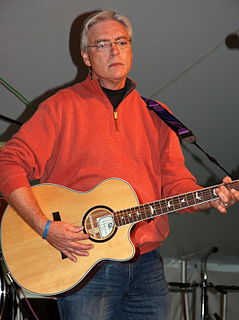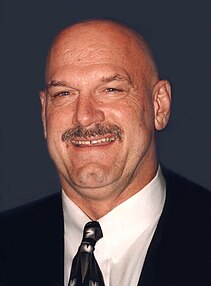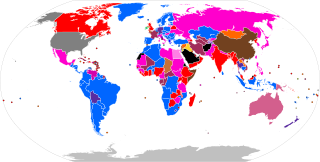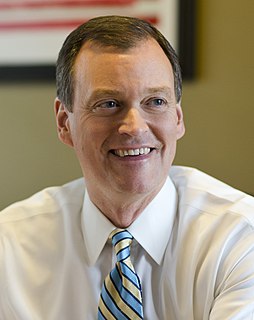
Peter Miguel Camejo Guanche was a Venezuelan American author, activist and politician. In the 2004 United States presidential election, he was selected by independent candidate Ralph Nader as his vice-presidential running mate on a ticket which had the endorsement of the Reform Party.

Timothy Joseph Penny is an American author, musician, and former politician from Minnesota. Penny was a Democratic-Farmer-Labor member of the United States House of Representatives, 1983–1995, representing Minnesota's 1st congressional district in the 98th, 99th, 100th, 101st, 102nd and 103rd congresses.

The 1998 Minnesota gubernatorial election took place on November 3, 1998. Reform Party candidate Jesse Ventura defeated Republican Party challenger Norm Coleman and Minnesota Democratic–Farmer–Labor Party challenger Hubert H. "Skip" Humphrey III. Ventura governed with a DFL-controlled state Senate and a Republican-controlled state House.

The Working Families Party (WFP) is a minor political party in the United States, founded in New York in 1998. There are active chapters in New York, Connecticut, Oregon, New Jersey, Maryland, Washington D.C., Pennsylvania, Wisconsin, Rhode Island, Nevada, West Virginia, New Mexico, Ohio, Texas, and Illinois.

The Grassroots-Legalize Cannabis Party is a political third party in the U.S. state of Minnesota created in 1986 to oppose drug prohibition. The party shares many of the progressive values of the Farmer-Labor Party but with an emphasis on cannabis/hemp legalization issues.

The Party of Greens of Ukraine is a Ukrainian political green party founded in 1990 by Yuriy Shcherbak and registered in May 1991.

The Brazilian Socialist Party is a political party in Brazil. It was founded in 1947, before being abolished by the military regime in 1965 and re-organised in 1985 with the re-democratisation of Brazil. It elected six Governors in 2010, becoming the second largest party in number of state governments, behind only PSDB. In addition to that, it won 34 seats in the Chamber of Deputies and three seats in the Senate, besides having been a member of the For Brazil to Keep on Changing coalition, which elected Dilma Rousseff as President of Brazil.
FairVote is a 501(c)(3) organization that advocates electoral reform in the United States.

The 2006 Minnesota gubernatorial election took place on November 7, 2006. Incumbent Tim Pawlenty was endorsed by the state Republican convention on June 2, 2006, while the state Democratic–Farmer–Labor convention endorsed Mike Hatch on June 10, 2006. The party primaries took place on September 12, 2006, with Hatch defeating DFL challengers Becky Lourey and Ole Savior and incumbent Pawlenty defeating Sue Jeffers. In the November 7 general election Pawlenty received a plurality of the votes, defeating Hatch by a margin of one percent. As of 2019, it is the most recent time a Republican was elected governor of Minnesota, or won any statewide race.
Roger Moe is an American politician and a former member and majority leader of the Minnesota Senate. He was also the state Democratic Party's endorsed candidate for governor in 2002.

Kat Swift is a United States political activist, former co-chair of the Green Party of Texas, and spokesperson for the Green Party's National Women's Caucus. Swift announced her intention to seek the 2008 Presidential nomination of the US Green Party at the 2004 Green Party National Convention in Milwaukee, Wisconsin. She was one of the youngest candidates to seek the office in 2008, meeting the age requirement of 35-years-old only months before Election Day in 2008. In 2007, she ran for City Council, District 1 in San Antonio, Texas finishing second of three candidates with 1,630 votes for 29.48% of the total vote. On July 12, 2008 she finished third on the single ballot for the party's presidential nomination with 38 out of 532 delegate votes cast. She later endorsed the winner of the presidential nomination Cynthia McKinney. Swift was later a 2010 candidate for Bexar County Commissioner in Precinct 2.

Ron Erhardt is a politician from the U.S. state of Minnesota and former member of the Minnesota House of Representatives. He represented District 49A, which included most of Edina in Hennepin County.
Jesse C. Johnson Jr. has been an Executive Committee member and former Chair and Vice Chair of the Mountain Party, the West Virginia affiliate of the Green Party of the United States. He has three times been his party's nominee for Governor of West Virginia, and twice for West Virginia's Class 1 U.S. Senate seat, running in 2006 and again in the special election in 2010. Johnson lost both times to the Democratic Party nominee. He has also been a filmmaker, actor, and theatrical producer.

The 2010 Minnesota gubernatorial election was held on Tuesday, November 2, 2010 to elect the 40th Governor of the U.S. state of Minnesota for a four-year term to begin in January 2011. The general election was contested by the major party candidates State Representative Tom Emmer (R–Delano), former U.S. Senator Mark Dayton (DFL), and Independence Party candidate Tom Horner. After a very close race, Dayton was elected governor. Emmer would be elected to the United States House of Representatives four years later.

The 2010 Connecticut gubernatorial election took place on November 2, 2010, to elect the 88th Governor of Connecticut. Incumbent Governor Jodi Rell had announced in a press conference in Hartford on November 9, 2009, that she would not seek re-election in 2010. The sites Cook Political Report and CQ Politics both rated the election as a toss up.
Electoral reform is change in electoral systems to improve how public desires are expressed in election results. That can include reforms of:

The Independence Party of Minnesota, formerly the Reform Party of Minnesota, is a political party in the U.S. state of Minnesota. It was the party of former Minnesota Governor Jesse Ventura (1999–2003).

An electoral system is a set of rules that determine how elections and referendums are conducted and how their results are determined. Political electoral systems are organized by governments, while non-political elections may take place in business, non-profit organisations and informal organisations.

Jeff Johnson is an American politician from Minnesota. He was elected to the Minnesota House of Representatives in 2000 and served there from 2001 to 2007. Johnson left the legislature to run for state attorney general in 2006, but was defeated. Johnson now serves as Hennepin County commissioner for the 7th district. He was elected as the Republican National Committeeman from Minnesota in April 2011. Johnson was the Republican nominee for governor of Minnesota in 2014, losing to incumbent Mark Dayton, and again in the 2018 Minnesota gubernatorial election, losing to the Democratic nominee, U.S. Representative Tim Walz.



















